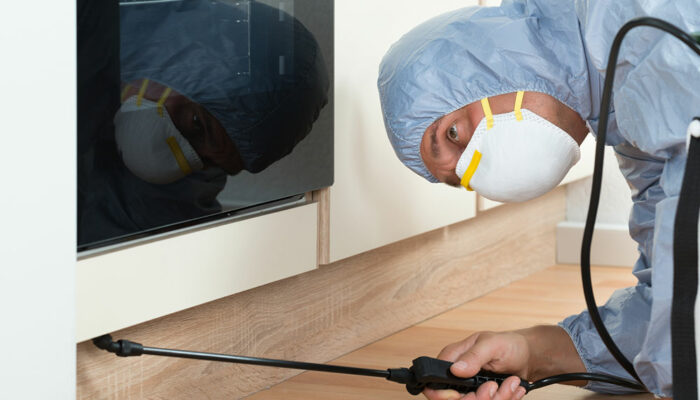4 useful home remedies to get rid of roaches

An insect infestation in the house is not only a nuisance but also a huge hygiene issue that must be addressed immediately. Roaches, in particular, are unsanitary and hide in the tiniest spaces and holes, including the drains. While they are sneaky with their hiding spots, there are a few ways to eliminate them from the home. Find their hiding spaces and then use the following remedies to solve the problem.
Home remedies to kill roaches
Here are a few simple home remedies that can help get rid of roaches at home. These remedies do not need professional assistance and can be used by almost anyone:
Boric acid
To get started with this remedy, mix three ingredients: boric acid, sugar, and water. Use equal quantities of all these and form a dough. Now, take this dough and divide it into small round balls or cylinders. Next, find the hiding spots of the roaches and place them there. The roaches will come to snack on the dough and ingest it. Since the mixture is poisonous to roaches, it will kill them. When the other roaches find them, they will feed on them and, in turn, ingest the poisonous boric acid, suffering the same fate. This way, one ingredient can help curb a roach infestation effectively by killing multiple generations of these pests.
Baking soda
This ingredient is readily available and is used by almost everyone. When roaches ingest baking soda, it produces gasses inside them. These gases cause them to bloat and die. Therefore, baking soda is an effective solution to get rid of roaches. However, these pests usually do not like to eat just baking soda. One way to trap them into eating this ingredient is using table sugar. Take some table sugar and mix it with baking soda on a small plate or a container that is accessible to the roaches. Roaches may also be attracted to onions, so placing onion rings sprinkled with powdered baking soda in their hiding spots can also help. However, do not use this remedy if there are dogs in the house, as onions are toxic to them.
Citrus sprays
Many people love homemade citrus and peppermint sprays as they help freshen up the room. However, these scents are unpleasant to roaches. The smell will drive them away, along with their egg cases. One way to prepare the spray is to mix essential oils (just a couple of drops) with water and spray the solution in various places in the house where roaches usually hide along with their eggs. Another remedy is to add these scents to the water used to mop the floor or wipe the countertop. Use a clean cloth when wiping the walls or tiles with this mix.
Diatomaceous earth
This is a tried and tested ingredient for killing the roaches in the house. Diatomaceous earth is a naturally occurring substance, which means it is not toxic to humans or animals. It is made up of the fossilized bodies of sea organisms. Diatomaceous earth has sharp edges that help in cutting insects. Roaches can easily get cut when crawling on top of this powder. The earth also helps dry out the insects’ bodies, making it a must-try remedy.
If someone is looking for solutions other than the home remedies discussed here, they can invest in store-bought treatments or hire professional services to get rid of roaches. Pest control contractors use different products and tools to control an infestation. Here are some ways to tackle the roaches:
Use insect growth regulators to target the eggs and nymphs so that no new roaches enter the house.
Invest in cockroach baits that attract the roaches and then poison them.
Use dust products that scratch and dehydrate the roaches (like diatomaceous earth).
How to prevent roach infestations?
Home remedies and treatments can help get rid of an existing cockroach infestation. However, experts recommend taking steps to prevent the problem from reoccurring in the future:
Sanitize the environment
Clean the house regularly to ensure pests do not find an environment conducive to breeding and reproduction. Roaches, in particular, find the smallest crumbs or food scraps and survive on them for long. They also love to snack from the garbage can, so empty it regularly and prevent it from filling to the brim.
Dry moist areas
Roaches love to breed in wet, moist areas. If there are leaks in the house, such as leaking roofs, vents, or pipes, immediately get them fixed. Use a dehumidifier in rooms that feel too humid. A dehumidifier can also be installed in the basement, which may sometimes develop leaks due to less maintenance.
Check the landscaping
Roaches and pests use the landscaping close to the house to hide. They come out at night and enter the kitchen area, basement, and toilets. So, keep the landscaping a bit further away from the house to avoid easy entry for the pests.
Besides taking preventive steps, it is advisable to speak to a professional about getting pest control done. Homeowners can compare the services of different contractors and get an estimate for the same.





